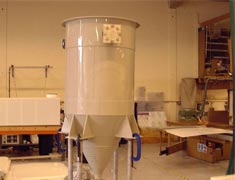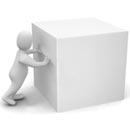Clave de Autorización: 0009300201A22345
Welcome To Taj Pharmaceuticals Ltd API
About Worldwide | FAQs | Careers | | Media Center | | Taj Pharmaceuticals World | | TAJ Group


|
Escitalopram Hbr Manufacturers in India Suppliers Escitalopram Hbr Exporters Distributors Escitalopram Hbr api active pharmaceuticals ingredients Escitalopram Hbr manufacturers Side Effects bulk drugs raw material Escitalopram Hbr companies Side Effects Importers Escitalopram Hbr Escitalopram Hbr Exporters Escitalopram Hbr exporters FDA Escitalopram Hbr DMF Symptoms Generic Taj Pharmaceuticals Ltd. |
active pharmaceutical ingredients suppliers pharmaceutical Escitalopram Hydrochloride manufacturing pharmaceutical drugs pharmaceutical intermediates Escitalopram Hydrochloride pharmaceutical chemicals pharmaceutical raw materials Escitalopram Hydrochloride active pharmaceutical ingredients Escitalopram Hydrochloride committee active pharmaceutical ingredients manufacturer Escitalopram Hydrochloride Active Pharmaceutical Ingredients manufacturer Escitalopram Hydrochloride exporter drug ingredients pharmaceuticals |
Pharmaceuticals API Manufacturer Escitalopram Hbr, Escitalopram Hbr manufacturer India, Escitalopram Hbr product, Escitalopram Hbr products, Api preparation, Certificate of Analysis API manufacturer product, Escitalopram Hbr anti ulcer product, Certificate of Origin COA Escitalopram Hbr COS Escitalopram Hbr, pharmaceutical generic, pharmaceutical drug, medical, Escitalopram Hbr pharma healthcare, pharma patents, contract MSDS manufacturing Trader Escitalopram Hbr pharma, generic pharma, HCL pharma MSDS pharmaceutical products, pharmaceutical formulations, generic import API, Escitalopram Hbr expectorant Pharmaceutical GMP Method of analysis formulations manufacturer, Escitalopram Hbr DMF drug master file pharmaceutical Anti Cancer active ingredient exporter from India, pharma Escitalopram Hbr ingredients, api, HIV Escitalopram Hbr, tablets, capsules, syrup & protein Escitalopram Hbr powder, GMP of Plant api nutraceuticals, gynec products, ortho ingredients in India, oncology products, Escitalopram Hbr gastroenterology products, buy, sell orthopaedic product, who gmp, cGMP, US FDA, Escitalopram Hbr WHO, UKMHRA Approval |
|







